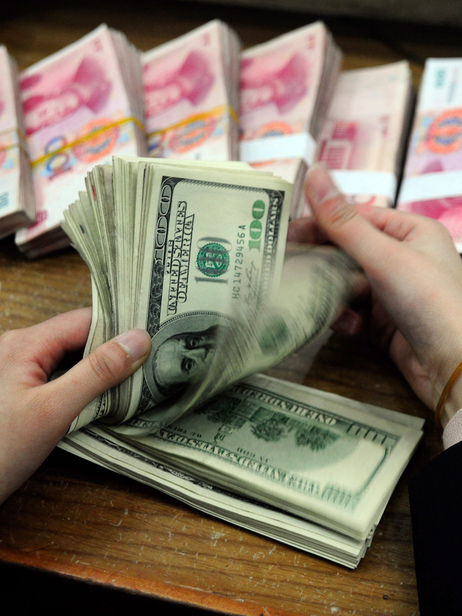The US Treasury has soften its long-time stance that China’s currency is significantly undervalued, but said an appreciation of the yuan was crucial for a successful transition of China’s current economic model.
In a semi-annual report to the US Congress released on Monday, the Treasury Department changed its wording on China’s currency, describing the value of the yuan as “below its appropriate medium-term valuation” rather than “significantly undervalued” as in previous reports.
The change came amid intensified monitoring by the Treasury of Beijing’s exchange rate policy following a state-decreed yuan devaluation in August. Between then and the end of September, the Chinese currency, also known as the renminbi (RMB), depreciated 2.3 percent against the US dollar.
However, the Treasury report said that the Chinese central bank had “sold a significant amount of reserves in August to stem the RMB decline,” thus dispelling market expectations of a much deeper fall. It also noted the currency had in fact appreciated against the greenback nearly 30 percent over the past five years – a period during which US officials repeatedly assailed Beijing for allegedly artificially holding its currency down to enhance exports.
The US Treasury found that capital outflows from China are intensifying, with $200 billion (176 billion euros) in August alone after $530 billion in the previous months of the year.
“Market factors are exerting downward pressure on the RMB at present, but these are likely to be transitory,” it said.
Under efforts to stabilize its currency, the People’s Bank of China (PBoC) sold a record net 761.3 billion yuan ($119.8 billion) of foreign exchange in September.
Call for stronger yuan
China’s currency woes come amid government efforts to change the country’s economic model. In contrast to growth driven by exports and investment, Beijing aims to boost expansion through higher domestic consumption.
The Treasury believes an appreciating national currency could help speed up the change.
“Further currency appreciation is key … and will support the purchasing power of Chinese consumers and help shift production towards non-traded goods and services,” the report said.
Few currency offenders
Apart from China, the Treasury report also deals with the currency policies of other US trading partners. This time, it did not label any country a currency manipulator. However, it called on countries with current account surpluses such as Germany and South Korea to do more to boost slowing growth in the global economy.
In the case of South Korea, it called for an end to the country’s currency interventions and repeated that the won appeared to be “undervalued.”
The Treasury also urged Japan to recalibrate fiscal policy to support economic growth and reduce reliance on yen depreciation to boost exports.
uhe/cjc (Reuters, AFP, dpa)



